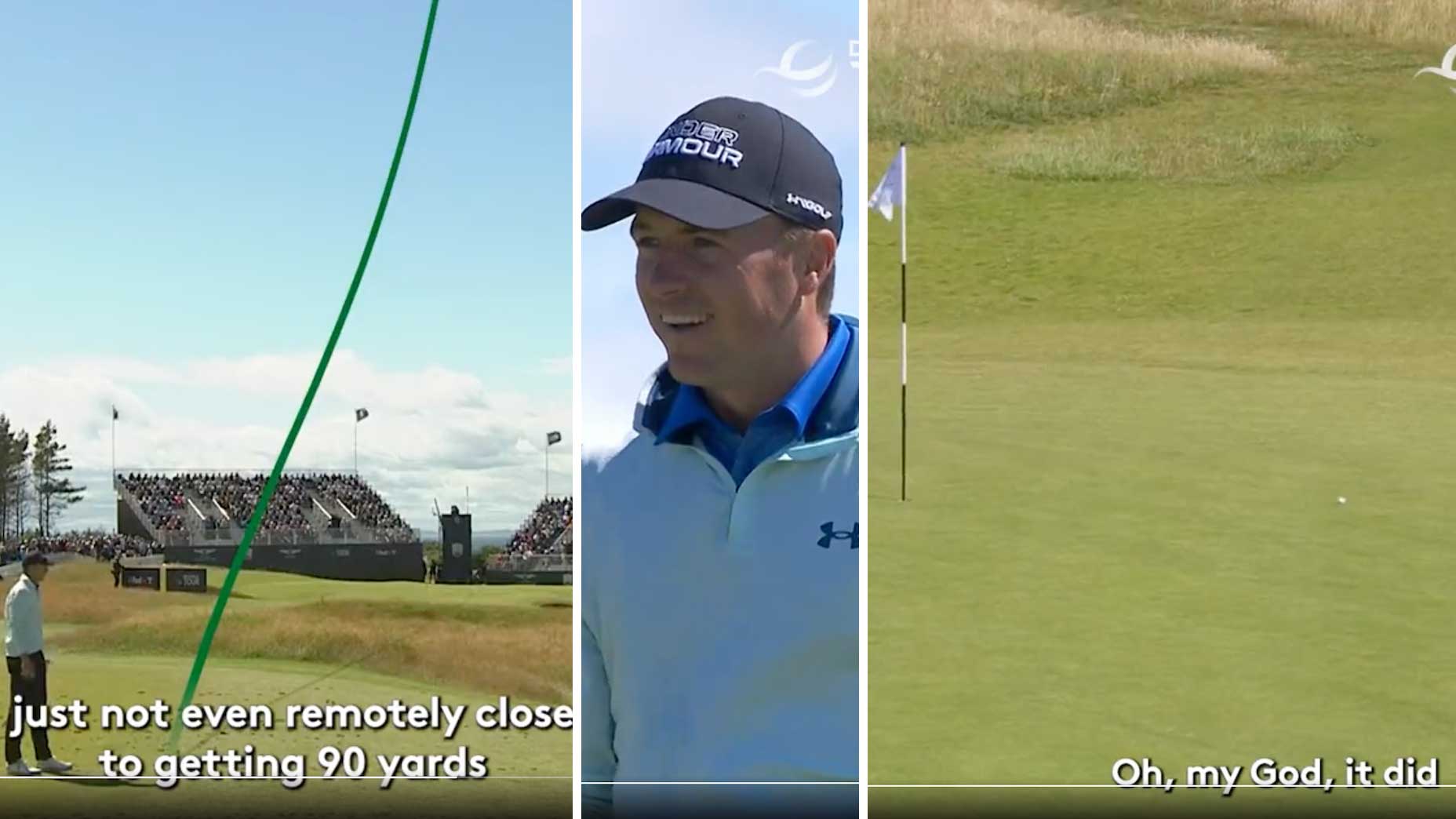Jordan Spieth was one under par for the round, three under par for the tournament as he stepped to the sixth tee at the Renaissance Club on Friday. Windy conditions had set up a challenging test for a second consecutive day at the Genesis Scottish Open, which meant Spieth was right in the thick of contention.
But that didn’t mean he was comfortable.
The telecast picked up Spieth second-guessing his club selection as he stood on the tee of the short par-3, which was playing just 111 yards with a hurting wind. What followed gave us a little window into Spieth, into his relationship with super-caddie Michael Greller, into Scottish golf and into golf, period.
“Is this even getting within 10 yards of the green?” Spieth asked Greller, stepping off his ball to reconsider. “You think it does?”
“Yeah, I still like that,” Greller said, unconcerned.
That’s the dynamic with these two — Spieth’s on-course persona is frenetic. He plays like he’s overflowing with nervous energy, like his mind is moving a million miles a minute and the only way he can cope is by vocalizing some of what he’s feeling.
Greller stays steady. He keeps perspective, and he reins in Spieth’s wildest instincts, and he keeps the train on the tracks. Sometimes that means bringing Spieth up when he’s down, encouraging confidence and commitment in the face of doubt. Other times that means bringing Spieth down when he’s up, talking him out of some hare-brained scheme to punch-slice something through a tiny window in the trees.
Spieth overrules Greller and pulls off these sorts of shots occasionally, of course. There was the “I just don’t see it, Jordan,” moment before Spieth made some magic at the Charles Schwab Challenge. And there was the punch shot he hit from the edge of the cliff at Pebble Beach, which he attempted at substantial risk to his own life but actually pulled off. None of this means Greller was wrong to object, though. Greller is never wrong.
Back to Scotland, then. The sixth hole was a particularly delightful test because it’s such a short shot with so much potential variation. Xander Schauffele, who shot 65 on Friday, described it this way:
“A hundred ten yards and you’re trying to figure out how to hit a 140-yard shot but not too low or too high because then it will end up in the wrong place.”
Enter Greller.
“I mean, if it ends up, y’know, 100, that’s good,” Greller said, a gentle encouragement that his player had the right club.”
“Okay,” Spieth replied. That’s an important part of the relationship, too — perhaps the most important. Spieth trusts Greller. He loves Greller. They’re fast friends and have been an incredible partnership. So when things are going well, they’ll each push back against the other until they settle on the correct answer.
Spieth hit the towering wedge shot, glanced at it for just a moment, and turned to Greller, dismayed.
“I mean, it’s just not even remotely close to going 90 yards,” he said. Just as he finished saying so, the ball landed exactly pin high, five or six feet from the hole.
“Oh my God, it did,” Spieth said, stunned. He turned back to Greller. “Didn’t it look like it was going 40 yards short?”
Greller didn’t say anything. He didn’t have to. I’m guessing the ball didn’t look to Greller like it was going 40 yards short, because Greller had no doubt that Spieth was holding the correct club. Because Greller is always right. His job requires that he’s right an awful lot. It requires great patience when his player lacks his own. And it requires trust — because Spieth knows deep down that Greller is right, even if he doesn’t know it in the moment.
We could all use a little more Michael Greller in our lives. We could use some of Spieth’s talent too, of course.
